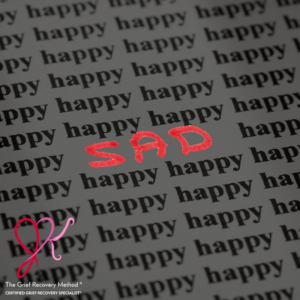You say you’re fine, but you’re really not!
The Award-Winning Academy Act – “I’m Fine”
This is a narrative I often used to tell myself and others: that I was strong, capable and fiercely independent to handle my emotions from painful events that occurred in my life. I’d put on my “Happy Face” and pretend everything was “Fine”.
Have you ever felt that way?
I have often said “I am fine” when I really was anything but fine. I was very sad, hurt and felt alone with my pain and what I needed most was to be able to tell the truth about how I felt but didn’t know how to do that. In fact, everything I learned and practiced convinced me not to show my REAL feelings at any cost. I was taught to bury any feelings that dealt with sadness. You know the sayings like: “Laugh and the whole world laughs with you, cry and you cry alone.” This and hundreds of other clichés about dealing with sad feelings taught me to lie about how I felt.
What is dangerous about doing this is that Every time we tell a lie, like “I’m fine” and it’s not the truth, our subconscious mind hears the lie and will then bury the feelings generated by the event that caused us to pretend everything is ok. Whatever the events were that caused us to hide our true feelings they were resulting in unresolved emotional issues and if we haven’t learned a good skill to allow us to express our emotional pain without analysis, criticism or judgement, those painful feelings are suppressed inside, where they tend to multiply. This not to say I am blaming my parents or society for having passed on ineffective ideas, skills, and tools for dealing with painful emotions and loss, but what I am saying is I learned better tools that actually help me with lasting recovery results through “The Grief Recovery Method”.
When painful feelings and losses remain unresolved, they become cumulative, and they’re always are cumulatively negative. Time does not heal the pain caused by loss and neither does lying about our feelings. This is such a big problem, I couldn’t possibly explain it all in this post but what I can do is practice a little recovery. Allow yourself to believe that the subconscious will take actions based on conscious commands. When we lied and said we were fine, we told it that there was no problem, so it need not search out a solution. The result is to allow the cause of the problem to go unattended and rebury itself. The next time it attacks you may not be able to recognize the cause or source of the attack.
Recovery Hinges on Telling The Truth About How You Feel!
A major key to recovery is to process every feeling in the moment you have it. It does not require any special skills to tell the emotional truth about what you are feeling. For example: “How are you?” … “I’m having a tough day, thanks for asking.” Notice that the answer is truthful but does not invite any help or advice. It also has the ability to tell the truth that you are not on your best game and the other party can respond accordingly. When you say, “I’m fine,” but you’re not, you have sent a very confusing message to yourself and others.
Your ability to communicate is verbal and non-verbal. Non-verbal communication includes tone of voice as well as facial and body signals. When our verbal and nonverbal signals do not match, most people will respond to the nonverbal. So, when you lie, most people can SEE it.
When I started to tell myself and others the truth about my feelings is when I experienced the benefits of recovery and lasting healing from the painful events in my life. It is my wish for everyone to have this experience too! I hope you reach out to me soon to begin.




